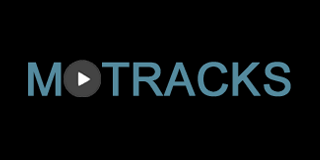-
Feed de Notícias
- EXPLORAR
-
Blogs
-
Eventos
Mental Health Billing Solutions: Ultimate Guide for 2025
Efficient mental health billing solutions are essential for healthcare providers to streamline administrative tasks, ensure compliance, and maximize revenue. Without a solid billing system, practices face financial losses, compliance risks, and workflow inefficiencies. This guide explores the best solutions, common challenges, and expert strategies to optimize your billing process.
Common Billing Challenges
Mental health providers often encounter unique billing challenges, including:
-
Insurance complexities: Varying policies and payer requirements
-
Coding errors: Incorrect CPT codes lead to claim denials
-
Compliance risks: HIPAA violations and inaccurate documentation
-
Claim denials: Rejections due to minor documentation mistakes
-
Time-consuming administrative tasks: Manual data entry increases workload
Key Features of a Good Billing Solution
When selecting a mental health billing solution, look for the following features:
-
Automated claim processing – Reduces errors and accelerates reimbursements.
-
EHR integration – Syncs with electronic health records for seamless data flow.
-
Compliance tools – Ensures adherence to HIPAA and insurance regulations.
-
Customizable reports – Provides financial insights and analytics.
-
User-friendly interface – Simplifies navigation and workflow efficiency.
Best Mental Health Billing Software
| Software | Key Features | Pricing |
| SimplePractice | EHR integration, automated claims | Starts at $39/mo |
| TheraNest | Client scheduling, compliance tools | Custom pricing |
| TherapyNotes | Insurance billing, secure messaging | Starts at $49/mo |
| Kareo | Cloud-based, reporting tools | Custom pricing |
How to Choose the Right Billing Software
Selecting the best billing solution depends on:
-
Practice size and needs – Solo practitioners vs. large practices
-
Budget constraints – Monthly subscription fees vs. one-time costs
-
User reviews and ratings – Feedback from other providers
-
Integration capabilities – Compatibility with existing systems
Optimizing Revenue Cycle Management
To improve revenue cycle management:
-
Verify patient insurance eligibility upfront
-
Use automated claim tracking
-
Follow up on denied claims promptly
-
Implement digital payment solutions
Understanding CPT Codes for Mental Health
Common CPT codes for mental health services:
-
90791 – Psychiatric diagnostic evaluation
-
90837 – 60-minute psychotherapy session
-
96127 – Brief emotional/behavioral assessment
Insurance and Reimbursement Processes
Navigating insurance claims requires:
-
Accurate documentation
-
Timely claim submission
-
Following up on underpayments
HIPAA Compliance in Billing
To maintain compliance:
-
Encrypt patient data
-
Restrict access to billing information
-
Regularly update security protocols
Outsourcing vs In-House Billing
Outsourcing:
-
Pros: Reduced administrative burden, expert handling
-
Cons: Higher costs, less direct control
In-House Billing:
-
Pros: Greater oversight, cost savings
-
Cons: Increased workload, requires trained staff
How AI is Transforming Mental Health Billing
AI-driven billing solutions offer:
-
Automated coding and claim submission
-
Error detection and correction
-
Predictive analytics for financial forecasting
Reducing Billing Errors
To minimize billing errors:
-
Regular staff training
-
Use automated verification tools
-
Monitor claim rejection trends
The Future of Mental Health Billing
Emerging trends include:
-
AI and machine learning integration
-
Blockchain for secure transactions
-
Improved telehealth billing solutions
FAQs
1. What is the best mental health billing software?
The best software depends on practice size, budget, and features needed. Popular options include SimplePractice, TheraNest, and TherapyNotes.
2. How do I reduce claim denials?
Ensure accurate coding, verify patient insurance, and follow up on denied claims promptly.
3. What are common CPT codes for mental health?
Key CPT codes include 90791 (diagnostic evaluation) and 90837 (psychotherapy session).
4. Is outsourcing billing worth it?
Outsourcing can save time and reduce errors, but it may be costly and limit control over billing processes.
5. How can AI improve billing efficiency?
AI automates coding, reduces errors, and enhances claim tracking for faster reimbursements.
6. How do I ensure HIPAA compliance in billing?
Use encryption, limit data access, and stay updated on compliance regulations.
Conclusion
Implementing the right mental health billing solutions can enhance efficiency, improve cash flow, and ensure compliance. Whether you choose in-house management or outsourcing, leveraging automation and AI can significantly reduce errors and streamline operations.






